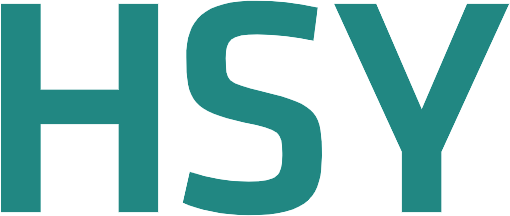Sustainable urban living programme
Information
Helsinki Region Environmental Services Authority
4.2.2022
Sustainable urban living programme
Helsinki Region Environmental Services Authority HSY
P.O.BOX 100
00066 HSY
tel. +358 9 1561 2110
www.hsy.fi
Abstract
The Sustainable Urban Living Programme is an extensive regional programme that complements the climate and resource wisdom plans of the cities in the Helsinki metropolitan area. It is based on “Together we will make the most sustainable urban area in the world”.
The programme aims to support the achievement of the climate goals of the cities in the Helsinki metropolitan area, both in terms of mitigation and adaptation, to include emissions from consumption and their reduction more prominently in the urban area’s sustainable development work, and to accelerate the transition to solutions that comply with the principles of the circular economy. The programme has been drawn up taking into account the cities’ carbon neutrality, circular economy and adaptation plans. The programme work has been carried out simultaneously with the definition of the measures of The . National and EU-level strategy work also provides important guidelines for the programme work.
The need for regional measures to promote the circular economy was identified in connection with the review of the implementation of the Helsinki Metropolitan Area Climate Strategy. The Sustainable Urban Living Programme also proposes new measures for adaptation to climate change, as the measures in the Helsinki Metropolitan Area Climate Change Adaptation Strategy had been defined for 2012–2020.
The Sustainable Urban Living Programme sets out 68 measures under six priority areas. These priorities are: consumption, food, waste and water, urban planning, construction, and well-being. The implementation of the measures will require regional cooperation with public organisations, companies, research institutes and residents over the next ten years. The timeframe for implementing the Sustainable Urban Living Programme extends to 2030. The programme does not include measures related to energy production or transport, as the climate goals for these are implemented through other channels (emission reduction programmes of cities and energy utilities, as well as regional land use, housing and transport planning work).
The programme introduces a new dimension to the urban area’s sustainability review: the assessment of consumption-related emissions and influencing them. These indirect emissions caused by residents – which result from the manufacture of construction products and consumer goods, food production and tourism, for example – account for about half of the total carbon footprint of Finns, but little information has been produced about them so far (). The Sustainable Urban Living Programme proposes that the assessment of these indirect emissions from consumption be started in the Helsinki metropolitan area. The programme also proposes measures to reduce emissions from consumption, in particular by promoting the means of the circular economy.
The Sustainable Urban Living Programme presents measures related to climate-proof urban planning and construction that takes account of the circular economy and changing weather conditions, among other things. The formulation of these measures has utilised, for example, the results of large-scale EU-funded projects ( and ).
HSY will act as a party initiating and monitoring measures, but many measures can also be launched without HSY’s participation. Both national and European Union funding channels can be used to turn the measures into projects. Many of the programme measures are suitable to apply for sustainable recovery project funding granted due to the coronavirus pandemic, for example.
The programme is intended to be a living and renewing document that provides an opportunity to create a platform and network for regional sustainability. The intention is that the programme will evolve and be renewed over the years, in line with changes in the operating environment, and that the programme will be used to implement and scale the results of research and development projects into ongoing practices. The launch of the implementation of the programme has included the publication of a monitoring tool (‘’, in Finnish) to track the progress of the measures and assess their impact.
The programme was prepared in 2019–2021 in a wide-ranging and participatory process together with experts and stakeholders of the member cities. It was approved by HSY’s Board of Directors in May 2021.
For further information, please contact Climate Specialist Maaria Parry maaria.parry(a)hsy.fi

